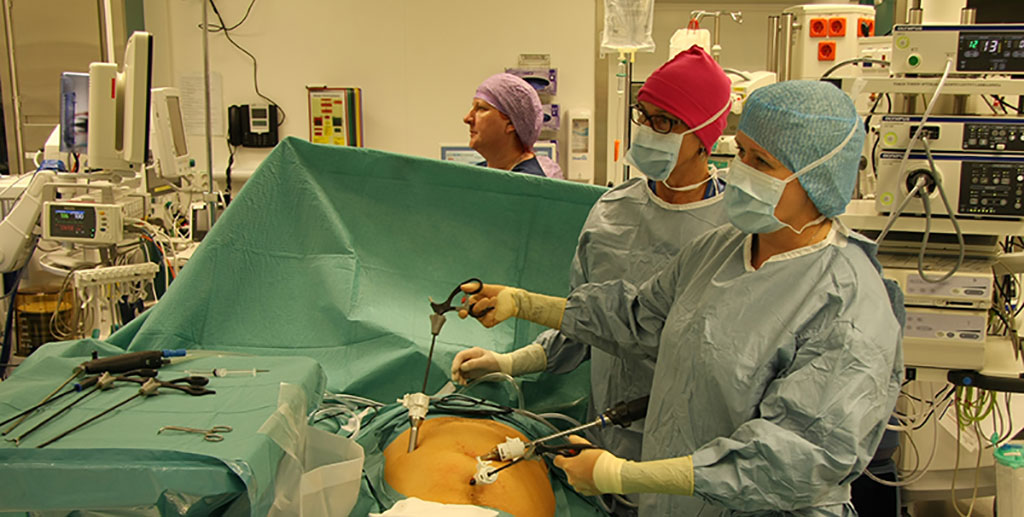Low-Dose CT Scans Help Diagnose Appendicitis
By MedImaging International staff writers
Posted on 25 Nov 2021
A new study suggests that low-dose CT can be used to identify appendicitis and differentiate between cases requiring surgery and those that can be treated with antibiotics alone.Posted on 25 Nov 2021
Researchers at the University of Turku (UTU; Finland) and Turku University Hospital (TYKS; Finland) conducted a prospective study of 856 patients with suspected appendicitis to examine the accuracy of contrast-enhanced low dose (454 patients) and standard-dose (402 patients) CT, as compared with protocols guiding imaging based on body mass index (BMI); this enabled direct CT imaging comparison only in patients with a BMI below 30 kg/m2. The on-call CT diagnosis was compared with the final clinical diagnosis.

Image: Professor Salminen performing laparoscopic appendectomy (Photo courtesy of TYKS)
“The results showed that low-dose CT identified patients with and without appendicitis at an accuracy rate of 98% and 98.5%, respectively. In patients with a BMI under 30, respective values were 98.2 % and 98.6%, respectively. The corresponding accuracy for differentiating between uncomplicated and complicated acute appendicitis was 90.3% and 87.6% in all patients, and 89.8% and 88.4% among those with a BMI below 30, respectively. The study was published on November 11, 2021, in the British Journal of Surgery.
“Contrast-enhanced CT is the reference standard used in diagnostic imaging for acute appendicitis in adults; the radiation dose has been of concern. This study aimed to assess whether a lower radiation dose would affect the diagnostic accuracy of CT,” explained lead author Professor Paulina Salminen, MD, of the TYKS department of surgery, and colleagues. “Low- and standard-dose CT were accurate both in identifying appendicitis and in differentiating between uncomplicated and complicated acute appendicitis.”
Laparoscopic appendectomy is safe and effective in obese patients, and may be the preferred approach since it may convey some advantages over the open approach in access to the appendix, visualization, and decrease in wound complications. In the morbidly obese, however, longer trocars and instruments may be needed.
Related Links:
University of Turku
Turku University Hospital














